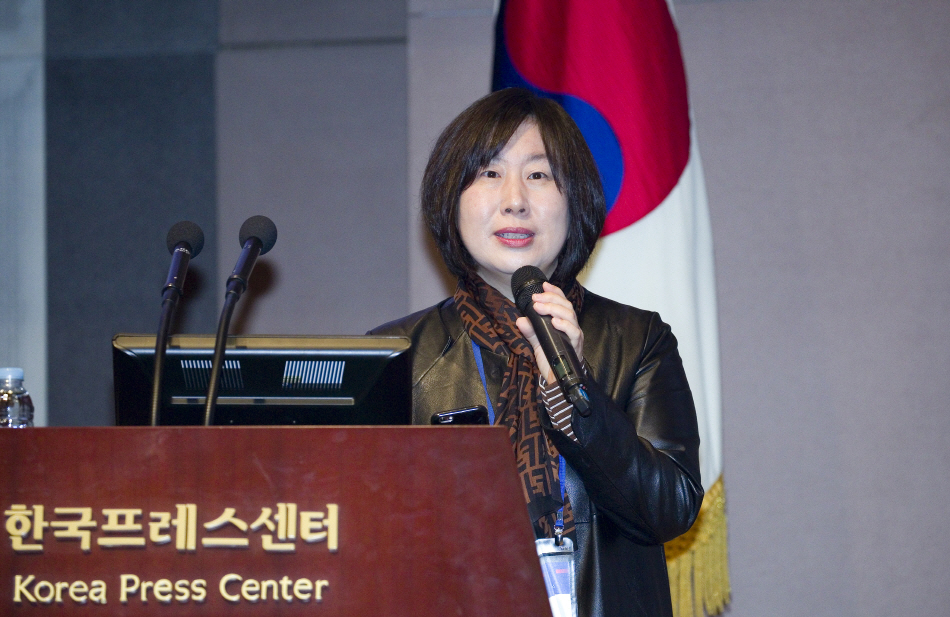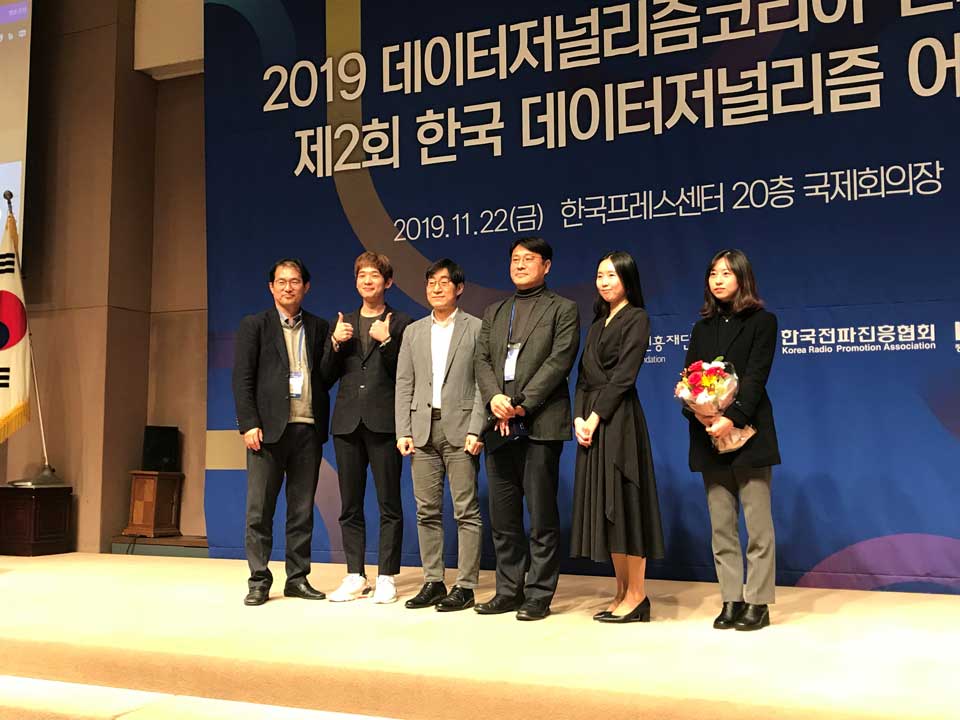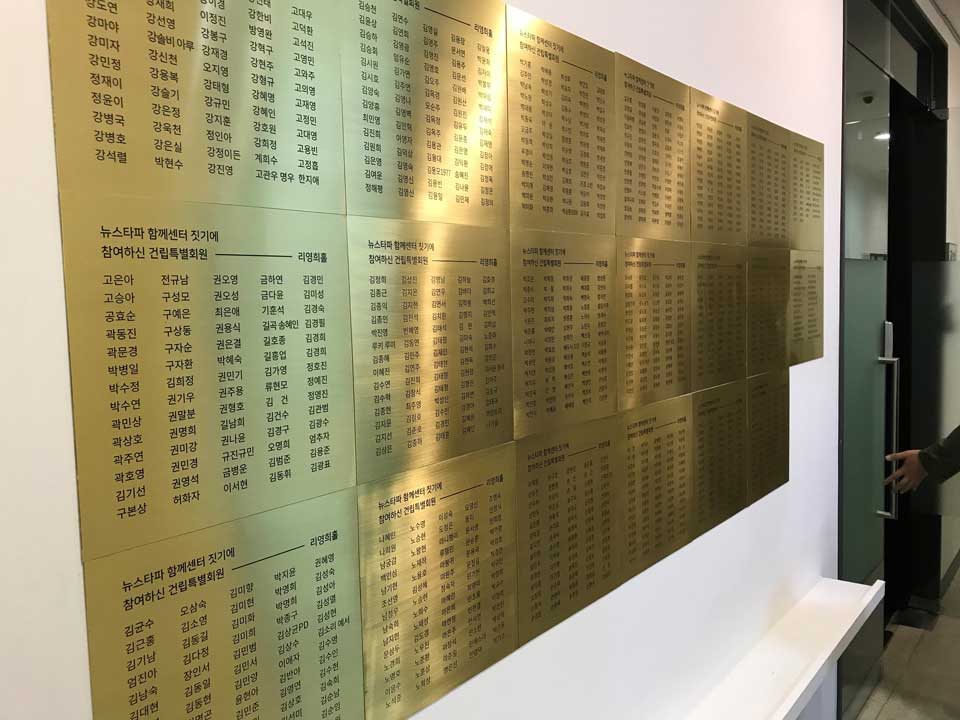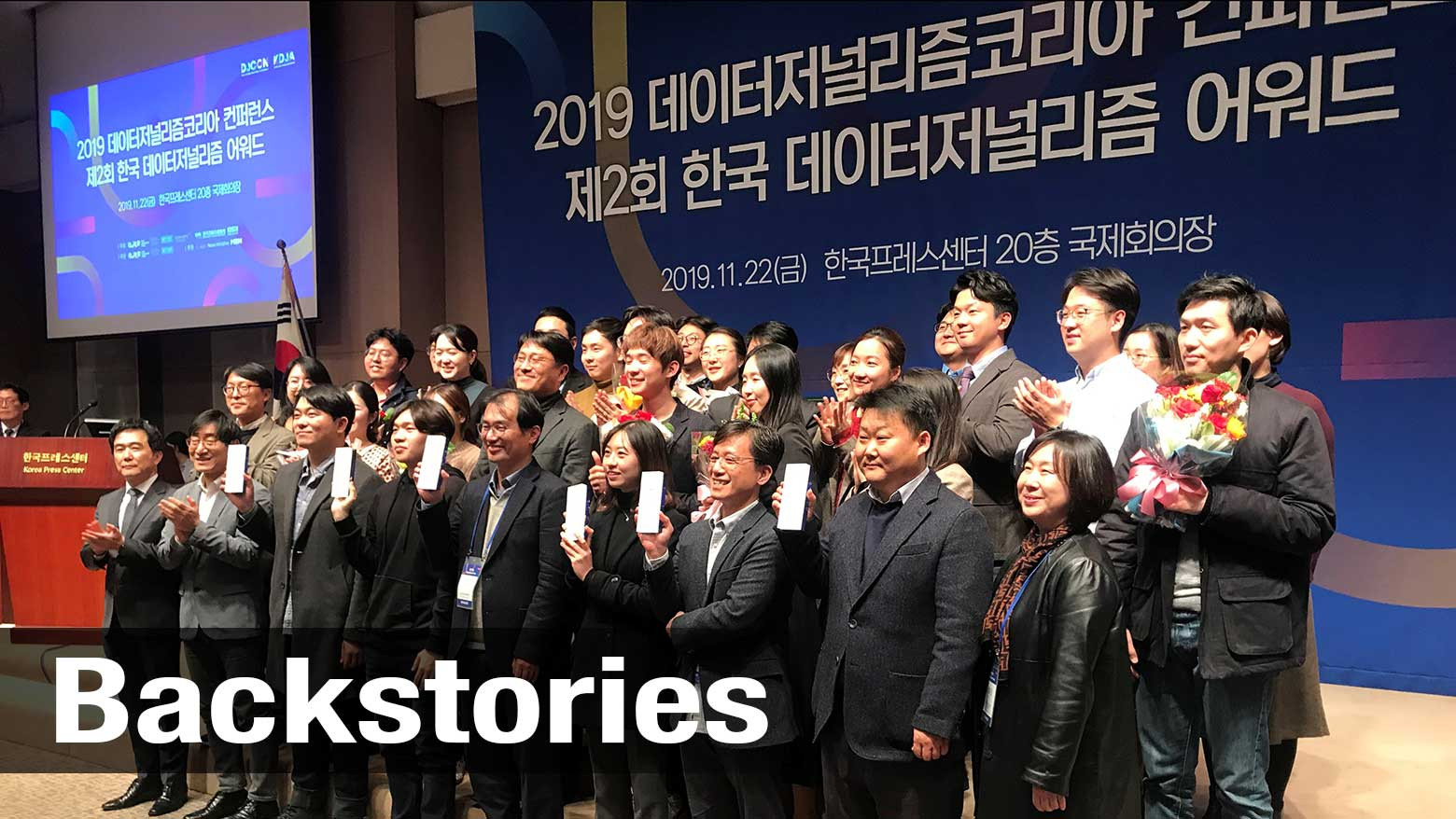The 2019 Data Journalism Korea Conference was held in Seoul on November 22nd. Representatives from a range of media outlets presented data journalism projects in front of an audience of more than 100 reporters.
One notable presentation was made by private broadcaster Seoul Broadcasting System, or SBS, on the methodology behind a report it had aired on state budget allocation over the past two years. SBS reporters revealed how the budget had been manipulated by members of the National Diet.
The presentation went over in detail how the reporters examined government data and budget committee session minutes. They used optical character recognition technology, or OCR, to digitize minutes released in PDF format. They then used text-mining technology to study the remarks of lawmakers word by word. SBS says the analysis took more than one year to complete.
The Korea Times, a South Korean daily newspaper, gave a presentation on an article about apartments marketed for low-income residents of Seoul. The article says developers illegally refurbish plots of land into tiny units, sometimes less than six square meters in size.
The paper's reporters obtained registry records for the apartments and contacted the owners. They also visited the buildings and counted the number of units by checking mail boxes and electricity meters. Even though none of the reporters were professionally trained in quantitative analysis, they were able to collect data by visiting and studying hundreds of buildings throughout Seoul.
The conference started last year with the goal of spreading the practice of data journalism by giving members of the media a platform to share analytic processes and recognizing outstanding reporting. Both the SBS and the Korea Times pieces were awarded prizes for excellence in investigative reporting.
Professor Hyejin Kwon of Konkuk University is one of the conference organizers. She says an increasing number of South Korean outlets have formed data journalism teams in recent years.
Kwon says there are three points that set data journalism apart from other forms of reporting:
1. Data analysis can reveal facts that journalists may not be able to uncover just by visiting a scene or talking to people.
2. By releasing data, outlets allow readers to make their own conclusions, ones that are potentially different from those reached by the reporter.
3. Releasing data brings a level of transparency to the reporting process.

Public broadcaster KBS established its data journalism team in 2015. It now consists of nine members--three reporters, three programmers, two analysts, and one designer.
The team published an article last year looking at changes in North Korea's political tactics by analyzing the frequency of the phrases used in the ruling Workers' Party newspaper, Rodong Sinmun.
In January 2018, "Trump" appeared nearly 400 times. But by April, the word did not appear at all. Similarly, phrases like "nuclear weapons" and "nuclear superpower" had almost completely vanished by then. On the other hand, the expression "economic construction" was used nearly 200 times in May. Up until two months earlier, it was almost never used.
The article says these changes reflect a shift in policy that came about as prospects grew for a US-North Korea summit.
"KBS is a TV station that produces a large number of stories each day," says the KBS data journalism team's senior reporter Kim Taehyung. "But data journalism takes time and costs a lot. It sometimes takes six months to complete one article. But the strength of data journalism is that most of our articles are investigative stories with unique perspectives."

At the forefront of South Korean data journalism is the Korea Center for Investigative Journalism, or Newstapa. The non-profit organization rose to national prominence when it exposed a large-scale attempt by the National Intelligence Service to spread false public opinion on Twitter in the run-up to the 2012 presidential election. The findings were based on an analysis of comments made by a number of linked accounts.
"Data journalism is one of the most effective newsgathering methods when operating with limited funds and staff," says Yun Won Choi, one of Newstapa's four data reporters. "This makes it possible for us to compete with conventional outlets."
One of the areas that Newstapa focuses on is making data public. One of its major projects is a database on assets held by bureaucrats, lawmakers and judges. It is based on more than a decade's worth of data released by the government. For example, if you search President Moon Jae in, a chart comes up showing the total value of his assets. This year, the number came in at over 2 billion won, or about 1.7 million dollars. This is almost double the amount from 13 years ago. There is also a detailed breakdown of the assets, showing his land and bank holdings.
The government releases all the data in PDF format. This means the Newstapa staff has to manually input it into its system every year. But Choi says despite how tedious this part of the job can get, the work his organization does forms the basis of investigative reporting. He says every March, when the newest data is added to the database, Newstapa is flooded with inquiries from other outlets.

Newstapa holds a data journalism seminar, known as the DJ School, for reporters and students. It has been held once or twice a year since 2016 and covers a range of topics, such as ways to request and gather data and how to analyze and present it.
About 20 people enroll per seminar. So far, 80 participants have graduated. And starting this year, an online seminar is also available.
"I hope all reporters eventually become data reporters," says Choi. "Most have already written articles that use data. But the nature of data is changing. In the past, reporters looked at a single page of numbers. But they now must analyze thousands of pages. Because of this, every reporter needs some level of data literacy and analytical know-how. That's what will help them write articles that provide unique insights."


